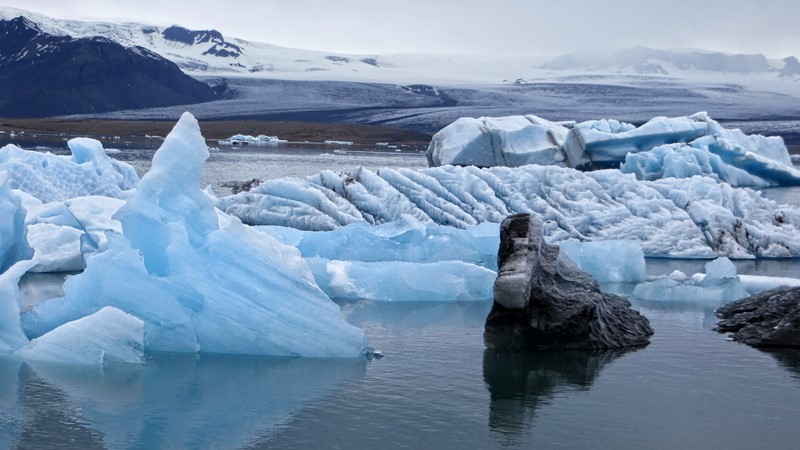
Our addiction to consumption is causing climate change and putting future generations at risk, warns David Stockdale.
Are humans sanguine about the impacts of climate change and the loss of biodiversity regarding the future of our existence on this planet? Have you ever thought why?
We humans are putting our existence and therefore the existence of our children and grandchildren at risk because of our addiction to carbon and unsustainable lifestyles in the developed world. We are also killing other species of animals and their ecosystems at an unprecedented rate. We, being the dominant global species, must change and acknowledge our individual roles, responsibilities, and the impact we have as ‘super-consumers’ in the developed world that has caused this climate and biodiversity crisis.
Wendell Berry (the American author) reflects: “We don’t have a right to ask whether we are going to succeed or not. The only question we have a right to ask is: What is the right thing to do? What does the Earth require of us if we want to continue to live on it?”
Our individual actions and the actions of world governments matter, and our children and grandchildren must be educated in how these crises have arisen.
We cannot rely on the developed world’s super-consumers to change their embedded consumer wants, needs and habits quickly enough in the required timescales to avoid further catastrophe to the planet.
The rising world population will demand the ending of inequality of standards of living and aspire to the ‘middle classes’ level of consumerism (as evidenced in China).
A recent study based on a survey of 10,000 children and young people [16 to 25] has identified a perception that the lack of progress by national governments regarding the climate and biodiversity crisis is causing anxiety and distress to 45% of global youth. Some 65% believe that governments are failing young people, while 75% of respondents to the survey believe the future is frightening.
The media did an excellent job in the run up to Glasgow and during the COP26 conference, but now it is over, and the latest covid emergency has reclaimed our attention. Post-COP26, the CIOB will have to revisit its Royal Charter and reaffirm its commitment to:
- The promotion for the public benefit of the science and practice of building and construction; and,
- The advancement of public education in the said science including all necessary research and the publication of the results of such research.
The key to the future COP26 agreement outcomes will depend in the short term on finance and sustainable investing – money. However, this is not the answer, only part of the solution. There are three ‘clear and present dangers’ moving forward that require a workable solution:
A critical review of the current economic system – capitalism and its measurement. In his book, Less is More, Jason Hickel makes a compelling argument on the impact that the capitalist system has on our planet. The capitalist model must be adapted together with a new definition of economic growth that replaces the default measure of gross domestic product (GDP). The tyranny of GDP measurement does not reflect the reality of climate change in terms of environmental and social impact on the planet. It does not measure natural capital’s goods and services consumed in the pursuit of economic growth.
An objective view must be taken of the merits of such growth or de-growth (less is more). The correct way forward intuitively is the quick adoption of the ‘circular economy’ in the built environment. We must remember that mankind does not produce anything, it simply turns nature’s goods and services into money.
The recognition of how developed country ‘super-consumers’ have succumbed to ‘optimism bias’. Research by Aaron Toal, (teaching fellow at Durham University and published in the alumni magazine) has concluded that through ‘optimism bias’, we convince ourselves that the fallout from climate change will not reach us or even if it does that the changes will be inconsequential to us, compared with those who live near the coast or in faraway countries.
Whatever the eventuality we are confident that we will survive. We are ‘pre-programmed’ as a species from an evolutionary psychology point of view not to waste time, energy and resources safeguarding for the future. The sacrifices that need to be made today to stop climate change go against our fundamental instinct to survive. We are ‘hard wired’ not to act now, only to focus only what is immediately essential to our own survival.
Our destruction of biodiversity and planetary ecosystems will ultimately quicken our demise. The other environmental emergency is protecting biodiversity. The loss of biodiversity poses as great a risk to humanity as climate change. Human societies depend on healthy ecosystems. Current human activity is thought to be causing species to disappear around one hundred times faster than the natural background rate.
“Seek first to understand, then to be understood” (Stephen R Covey). An individual’s ability to grasp a bigger picture or a different perspective is not usually constrained by lack of information. The critical constraints are usually in the way that the individual thinks and assumptions that they make – both of which are usually unknown to that individual.
The core role of the CIOB moving forward is to ensure that its corporate plan allows the global membership to gain the ‘bigger picture’ and appreciate other people’s perspectives by the adoption of the United Nations Sustainable Development Goals and developing an understanding of ‘optimum bias’ to address the reality of the challenges ahead.
David Stockdale FCIOB is director of Briga Consulting.











